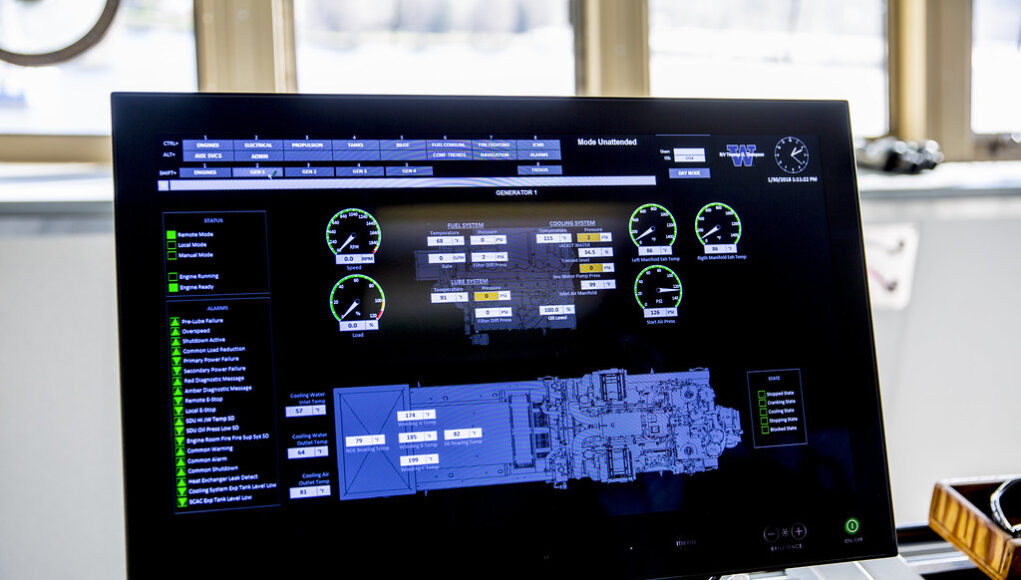In the current industry and commerce practices, pressure is an important factor to be measured for it reflects safety, efficiency and efficiency in operations. Pressure monitor systems are sophisticated gadgets intended for the purpose of constantly measuring pressure so that the applicable machinery and processes remain within secure zones. This article aims at identifying the relevance of pressure monitor systems, how they help in the general functionality of the operations.
What Is a Pressure Monitor System?
Table of Contents
Definition and Function
Pressure data recorders are instruments that are employed in the measurement of pressure in systems including pipelines, tanks and machinery among others. These systems are basically air pressure monitoring systems where sensing elements are applied to measure the pressure variations and send the information to a master control station. The main purpose of pressure monitors is to detect and control pressure values to keep it within predefined undesirable upper and lower levels in order to avoid risks which may be associated with the system.
Components of a Pressure System
Pressure Sensors: These are the core ones that are used in sensing pressure changes in the machine. They convert the mechanical force into electrical signals.
Display Units: The data produced at the sensors are also read on real-time use of digital or analog indicators.
Control Units: These units process the data, which can include such measure as warnings or automatically activating corrective actions if pressure levels fall within or exceed the permissible limit.
Communication Interfaces: These enable transfer of data to other distant points or interfacing with other systems.
Pressure Monitor Systems and Its Applications
Industrial Processes
Other areas that require pressure control include manufacturing as well as industrial processes in which correct pressure levels have to be maintained for safety and productivity. Pressure monitoring systems are applied for observation of pressure in hydraulic as well as pneumatic and chemical equipment. It aids in keeping equipment from failing, maintaining product quality as well as meeting set safety standards.
Automotive Industry
In the automobile industry, the pressure monitor systems help in keeping track of tires’ pressure and ideas of the engine. The pressures inside the tires affects the vehicle stability, fuel economy and safety; while the engine pressure monitoring assists in engine efficiency and its overall heath.
HVAC Systems
HVAC systems employ pressure control systems to regulate air as well as refrigerant pressures. This is also helpful in a number of ways including in maintaining the efficiency of the system, avoiding cases of leakage as well as inadequate management of temperatures.
Oil and Gas Industry
The management of pressure is critical in the field of oil and gas industry in the management of extraction, transport and processing of the resource. Pressure monitor systems also play a crucial role in identifying the leaks potentially, reducing the risks of blowouts and guaranteeing the planned operations’ safety.
Benefits of Pressure Monitor Systems
Enhanced Safety
Pressure monitor systems are very vital in as a measure to preventing of incidences that may lead to major mishaps. In most of these systems, pressure values are continuously checked and once signs of possible problems are detected, remedial measures can quickly be taken.
Improved Efficiency
Pressure measurements enable optimal system performance and the measurement of energy used in the system. Pressure control is cost effective and prolongs the use of vessels and other equipment involved in pressure control.
Compliance and Regulation
A number of industries have set high standard of pressure which they are allowed to exert by regulatory agencies. Pressure monitor systems are important tools as they enable compliance with regulatory laws and avoid legal complications.
Real-Time Monitoring and Alerts
Current pressure monitor systems provide information and data and timely alarms. This capability enshures timely response to changes in pressure and in this way, there will be limited down time or damages made.
Selecting the Right Pressure Monitor System
Determine Your Needs
Possible factors to look for when selecting an instrument include the range of pressure the application requires, the level of accuracy which the application needs, and environmental conditions under which the application will operate. Select a system that borders on these needs and blends with the rest of your structures.
Quality and Reliability
When acquiring pressure monitor systems, it is wise to go for those from companies that will have good reputation in the market and whose products are less likely to develop problems frequently. Strengthen and optimize the system so that in this operational environment, it will deliver as expected.
Support and Maintenance
You should choose the system that will be well supported and maintained by makers. It is therefore imperative that these are calibrated and serviced so as to ensure the proper functioning of the system and accurate reading.
Pressure monitor systems are very important tools when it comes to safety, effectiveness and regulatory requirements across different sectors. Because of displaying pressure data and giving early signals of problems in working conditions, these systems act as protective mechanisms in preventing mishaps and ensuring effective and sound functioning. Acquiring a good pressure monitor system is therefore one of the ways towards increasing safety and productivity within your business.
Apart from this, if you are interested to know more about Elevate Your SEO Game: The Role of Guest Posting in Digital Marketing then visit our Digital Marketing category.















